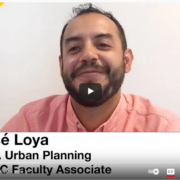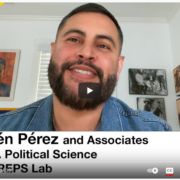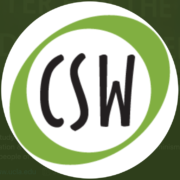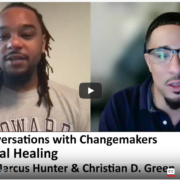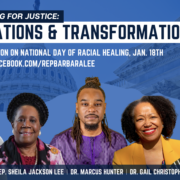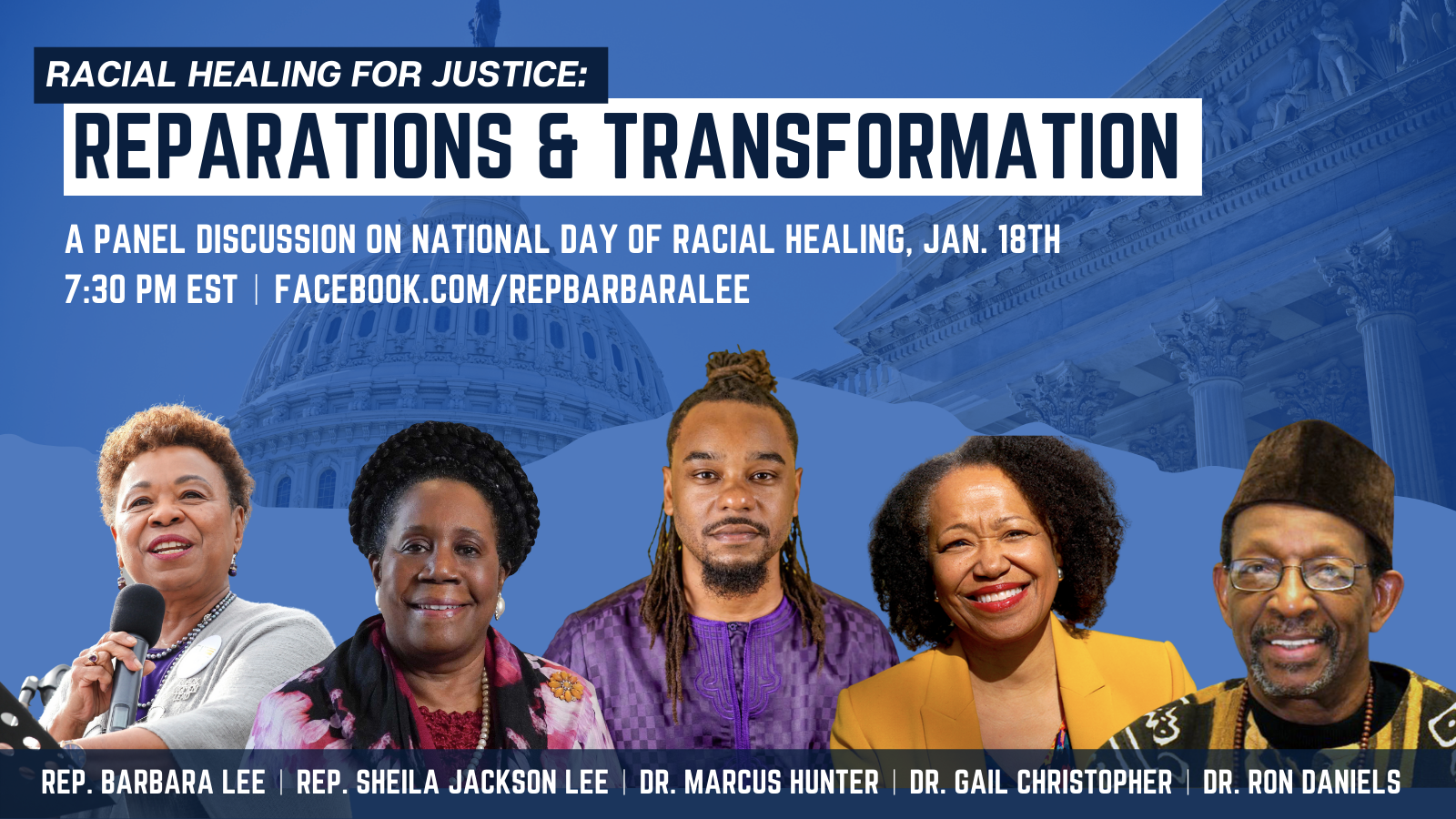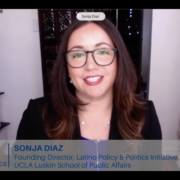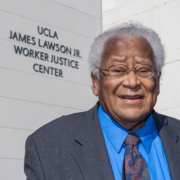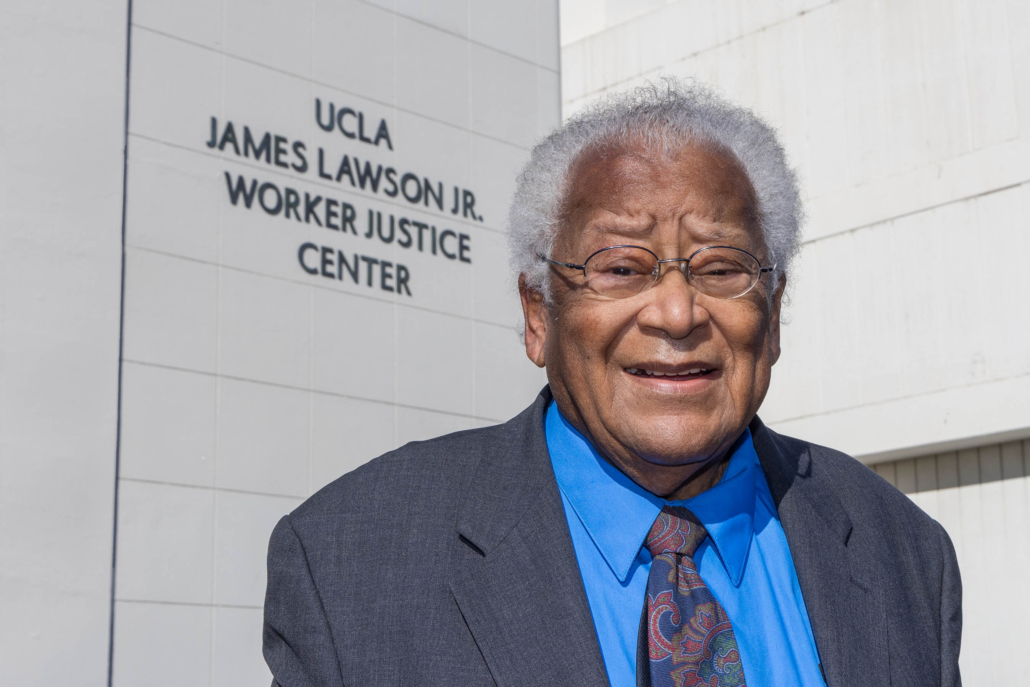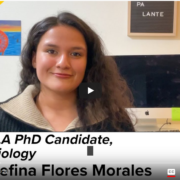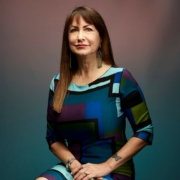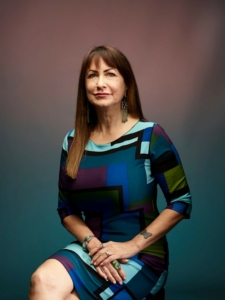Faculty and researchers from UCLA’s Latino Politics and Policy Initiative in the Luskin School of Public Affairs are not only documenting the changing dynamics of voting in America. They also serve as champions of voting rights that will allow Latinos and other underrepresented groups to step into their political power.
Since 2014, the initiative has drawn on extensive research and real-time analysis of election cycles, diving into issues that impact voters of color—particularly Latinos, a population that represents the plurality of California and is the largest non-white ethnic group in the nation.
The group’s flagship advocacy effort, The Voting Rights Project played a role in shaping new voting rights legislation that has passed the U.S. House and is awaiting Senate action.
Led by UCLA alum Sonja Diaz as founding director, the goal of LPPI is to drive policy actions that address the needs of Latinos.
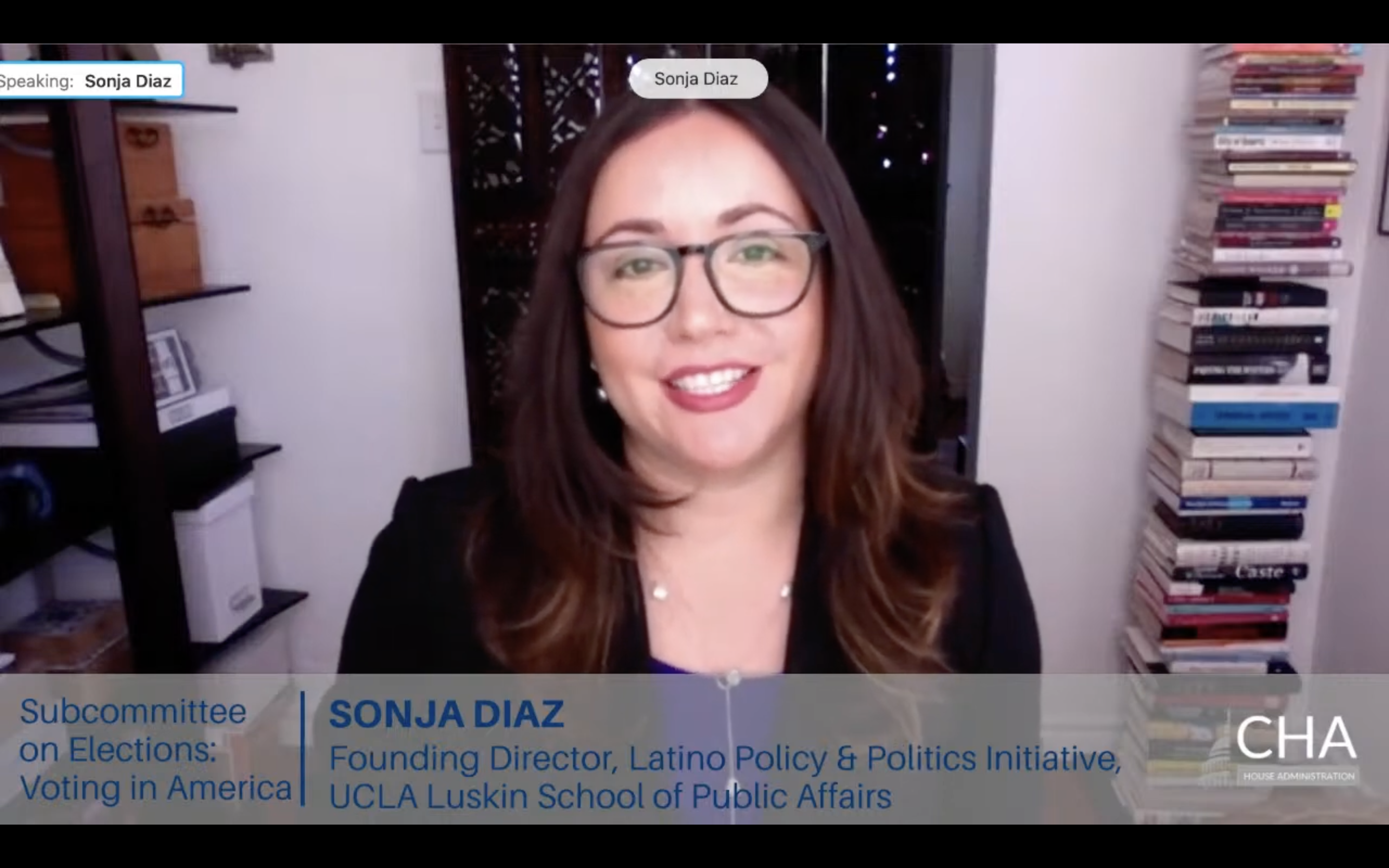
“Directing UCLA LPPI has provided an unparalleled opportunity to leverage my entrepreneurial skills with my passion for social change in my hometown,” Diaz said. “It has enabled me to put a bright spotlight on the issues that Latinos care about and the power I’ve seen in our communities since I was a child. “It’s also created the space to develop data-backed policy for this incredibly diverse and complex population that far too few people have taken the time to really understand.”
Diaz and UCLA professor of political science Matt Barreto, who are both voting rights experts, testified during House hearings on the bill and offered solutions to combat recent attacks on access to the ballot box. Their testimony contributed to “Voting in America,” a report led by Subcommittee Chair G.K. Butterfield that was used to develop the new voting rights legislation.
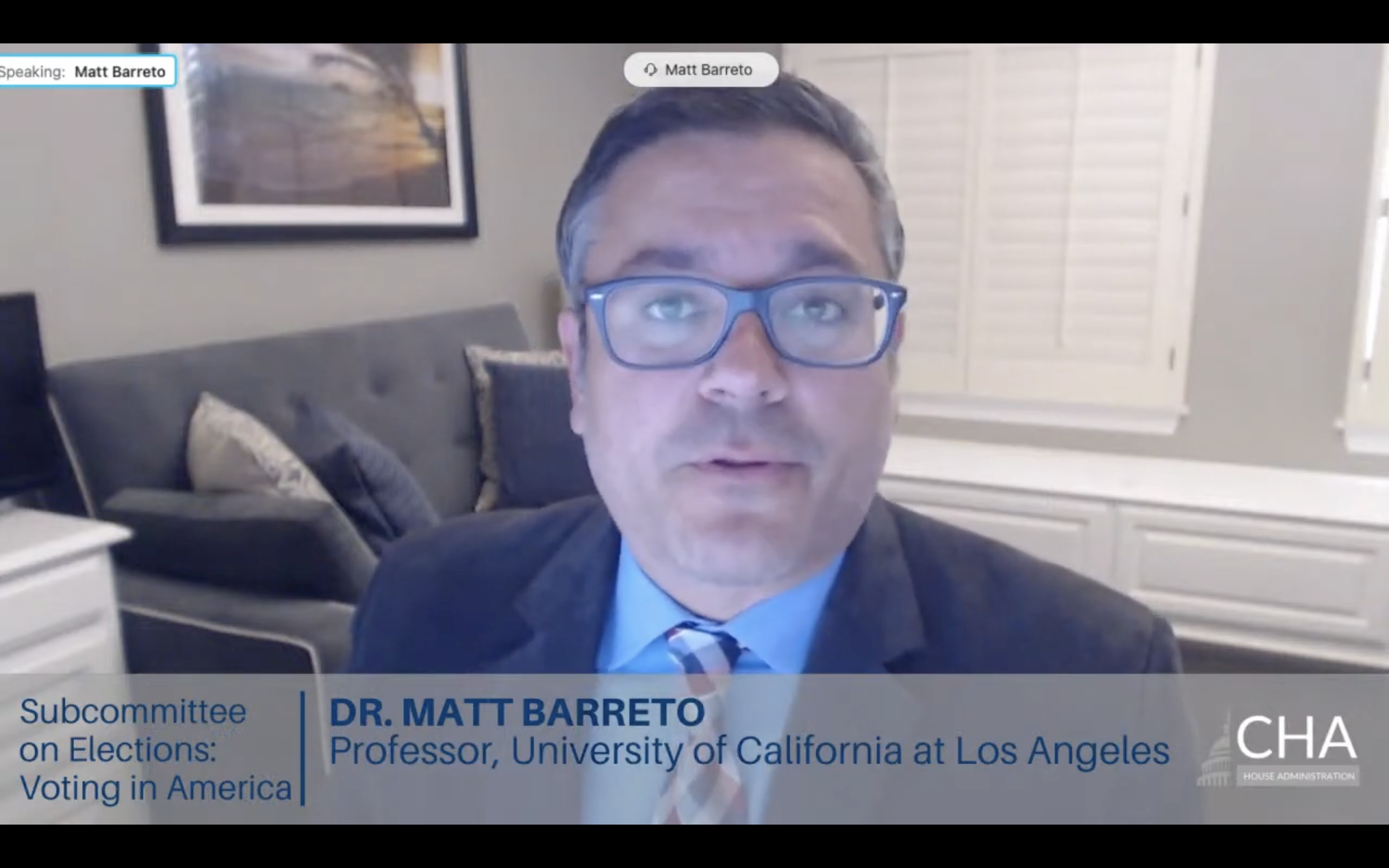
Drawing on extensive research and real-time analysis of election cycles since 2014 into the behavior of voters of color – particularly Latinos – Diaz and Barreto outlined the changing dynamics of voting in America.
They highlighted how the American electorate is shifting due to growing numbers of young Latino, Asian American and Pacific Islander voters and how voting rights have been curbed since Shelby v. Holder gutted Section 5 of the Voting Rights Act through actions like voter ID laws and lack of multilingual ballots.
They also recommended steps our federal government should take to protect access to the ballot box in light of the 2021 redistricting cycle. UCLA LPPI’s work on the new voting rights legislation included an in-person briefing with Rep. Butterfield at UCLA Luskin with senior policy fellows and policy faculty experts.
“The architects of the Voting Rights Act of 1965 sought to ensure all Americans were able to exercise their fundamental right to cast a ballot in the face of widespread discrimination.” Diaz said. “While we have made real progress in curbing the racial discrimination of Jim Crow, we find ourselves in a new era of vote denial and suppression and we cannot go backward.”
With more than 400 bills in state legislatures across the nation aimed at restricting voting rights introduced this year, the work is vital for all Americans.
“We are at a critical moment in our democracy,” Barreto said. “As the demographics of the country shift toward being less white, those who have always held power are doing everything they can to retain it, including trying to restrict the fundamental right to vote.”
Without a comprehensive solution such as sweeping voting rights legislation will protects the rights to vote, Diaz said she is concerned that the country not only risks silencing the voices of youthful, diverse electorates but also jeopardizing our very democracy.
Within this context, Diaz and Barreto’s pivotal efforts to ensure all eligible voters can cast a meaningful ballot couldn’t be more critical, especially because those efforts are squarely focused on protecting Latinos and other communities of color.
To this end, in just the past year and a half, LPPI has released research highlighting opportunities to expand access to the ballot box through vote-by-mail, the increasing influence of voters of color and information into why some may want to limit their power.
They are advocating for the need for deep, meaningful and sustained engagement of growing electorates like Latinos and Asian Americans. In December 2020, the Voting Rights Project hosted a symposium bringing together voting rights practitioners, expert witnesses, and legal scholars from around the country. The convening explored a path forward to protect the right to vote and craft a 21st Century voting rights act.
The work to increase Latino political power and strengthen the voting rights of underrepresented Americans is personal for Diaz. She marched in the streets with her parents to protest Prop 187, a California ballot proposition passed in 1994 that sought to restrict access to public services for undocumented immigrants.
“Protesting on the streets served as my first education in the power of the vote,” Diaz said. “It’s where I decided that I would use my power to advance equitable policy and expand civil rights, so that dignity and opportunity are not limited to where you live or how you identify, but accessible to everyone.”


